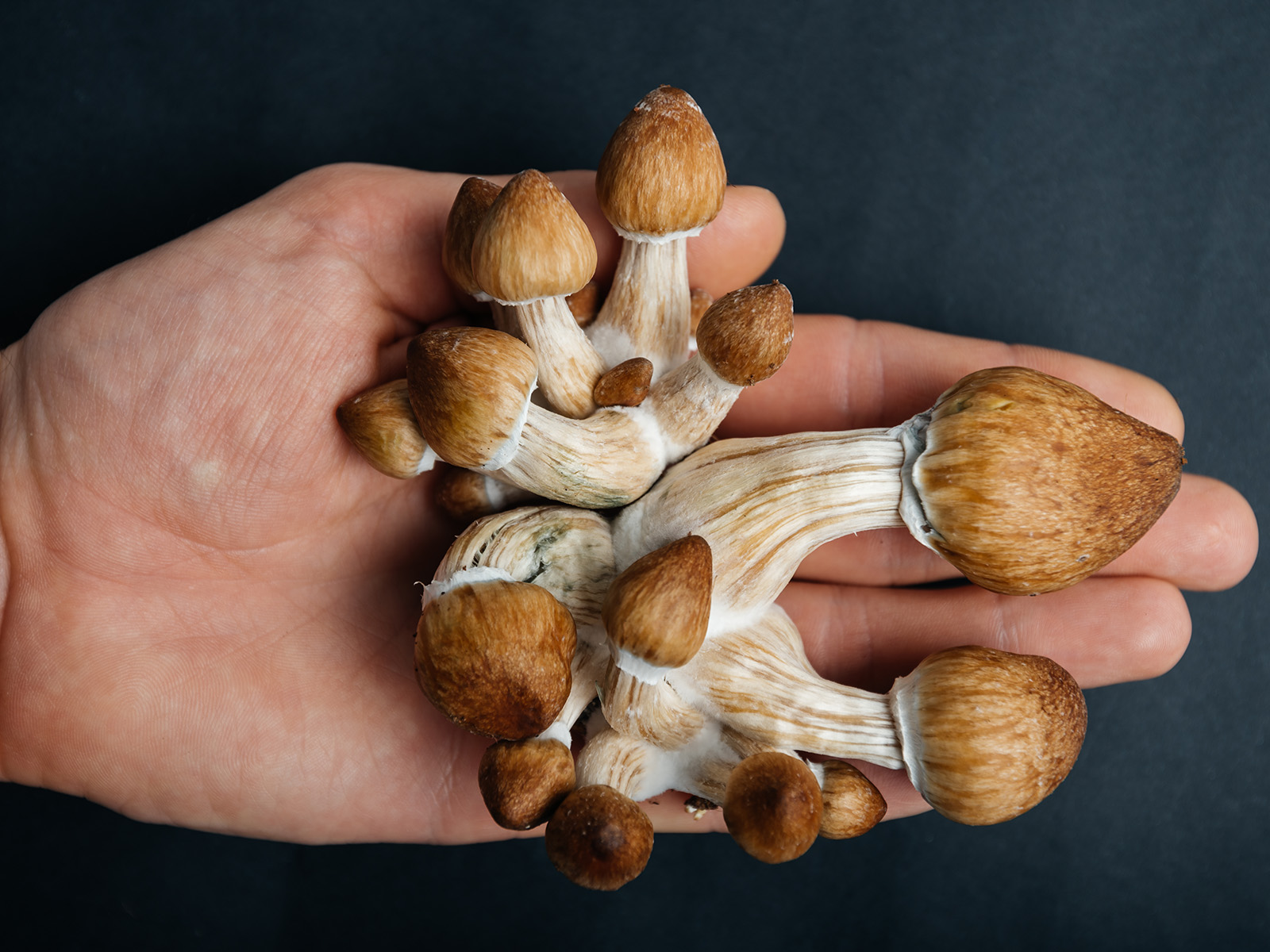The informational phone line, a free service provided by Colorado Springs nonprofit Unlimited Sciences, offers guidance to people interested in using psilocybin mushrooms, ayahuasca, and other psychedelics.
The Local newsletter is your free, daily guide to life in Colorado. For locals, by locals. Sign up today!
The culture surrounding psychedelic drugs has shifted significantly over the past few years, with voters in Colorado leading that charge. In 2019, Denver became the first U.S. city (and in 2022 Colorado became the second state) to decriminalize psilocybin, a psychedelic substance found in some mushrooms. Growing, possessing, and using psilocybin in most cases no longer carries a criminal penalty in Colorado, which has led to an uptick in usage.
These changes have also resulted in more research, says Matthew X. Lowe, executive director and chief scientific officer of Unlimited Sciences, a Colorado Springs–based nonprofit focused on psychedelic research and education. “We’re seeing all these published papers coming out noting various benefits,” Lowe says. “But it can be incredibly difficult for the consumer to understand the state of psychedelics.”
Lowe’s goal is to take all that information and make it digestible for a nonacademic audience. When Unlimited Sciences launched in 2018, it built on the mission of its parent organization, the Realm of Caring Foundation, which for more than a decade has been researching and attempting to demystify the impacts of cannabis. One of the ways they’ve done so is with a popular toll-free cannabis support line, which has served more than 73,000 callers since its inception in 2014.
In February, Lowe’s team at Unlimited Sciences was able to launch a similar service for psychedelics with support from the Wana Brands Foundation. Now, anyone interested in hallucinogenic mushrooms, ayahuasca, or other psychedelic substances can call 1-888-210-3553 and be connected directly with a trained navigator.
On a recent weekday morning, I was one of those callers. I dialed the hotline to test the experience and, for no particular reason, to learn a bit more about psychedelics. My first two calls went unanswered, but I left a message and eventually a so-called navigator called me back. Based on that experience and my earlier conversation with Lowe, here are five takeaways about the world’s first psychedelic hotline.
Before I was connected with someone, an automated menu made the disclaimers clear: “This psychedelic info line does not give, nor is it a substitute for, medical or legal advice.” I was prepared for this; Lowe had told me the phone line was not for people who are experiencing crises or are already on psychedelics. For that kind of support, he recommends resources like the Fireside Project. Moreover, the people you will speak with are not mental health providers. A navigator may summarize benefits of psychedelic use, but they are not offering prescriptive advice like a licensed counselor or physician would. So don’t expect your navigator to give you specific, customized dosage suggestions. Instead, they’ll speak generally about the most common usage habits.
At the beginning of my call with the navigator, I explained I hadn’t had much experience with psychedelics. So, what advice did they have? “It’s like any relationship. You want to go slow. Get used to it in a comfortable place,” the navigator said. “The experience can be interesting, it can be exhilarating, it can be beautiful, or it can be scary. It’s a bit of a roller coaster ride.”
At no point did the navigator try to steer me in any direction—the advice was general and loose. I didn’t feel like I was talking to a medical professional, which made me feel comfortable during the 11-minute call. “We’re not there to give you the answer of ‘yes’ or ‘no,’ ” Lowe says. “We’re giving you the information you need to make that decision for yourself.”
Because the informational phone line exists for educational purposes, it’s also a way for Unlimited Sciences to connect people to research. When I asked the navigator about microdosing, they suggested I look into a study Unlimited Sciences conducted with Johns Hopkins University—the largest longitudinal study of its kind about psilocybin use. The navigator also pointed me to microdosing protocols developed by other researchers and psychologists.
You don’t have to live in Colorado—or another state where psilocybin is decriminalized—to use the hotline. Anyone around the world can call regardless of the type of experience they’re interested in. The navigator explained that some people are like me—just wondering what psychedelics are all about—while other callers are considering taking large quantities of mushrooms and want guidance.
Callers can choose to remain anonymous, but the hotline does keep a record of the phone numbers that use it. “We do keep a record of who is calling so that we may build relationships with our community, respond to call-back requests, and keep an open line of communication between our navigators and the individuals who call in,” Lowe says. “This information is kept strictly confidential and cannot be accessed outside of our team.”
Unlimited Sciences navigators encourage you to register as a client on their website, after which you receive additional access to navigators via email and frequent updates about research being done in the field. The navigator I spoke with even offered to create my client account while we were on the phone, and Lowe told me that they frequently correspond directly with clients.
All things Colorado delivered straight to your inbox.
Subscriber Services:
1-866-271-5280
5280 Publishing, Inc.
1675 Larimer St.
Suite 675
Denver, CO 80202
Phone: 303-832-5280
5 Things We Learned From the World's First Psychedelic Hotline – 5280 – 5280 | The Denver Magazine
